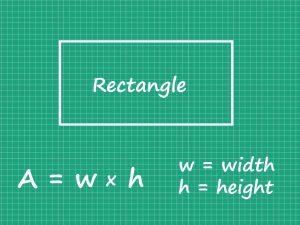Introduction:
Bar Graph
A bar graph is a graphical representation of information.
Bars are used in bar graphs. Bar graphs can be created using vertical bars, horizontal bars, or grouped bars.
Steps to Make a Bar Graph:
Step 1: Consider the title from the given data or tally chart.
Step 2: Choose a scale.
Step 3: Consider two axes, vertically and horizontally.
Step 4: Draw the bars according to the given data
Note:
A bar graph makes it easy to compare data.
Example of a Bar Graph:
Record the data in the form of a tally chart or information chart.
Choose a scale for each of the axis.
Now, draw a bar graph by using a scale and a data chart.
The horizontal axis shows the kinds of flowers; the vertical axis shows the number of flowers. Here, each grid line represents 2 units.


Example 1:
See the table of data and draw the bar graph.
The bar graph shows information about the number of pages read from a comic book by a group of friends.

Solution:
First, select the same title given to the table data.
The title of this bar graph is the ‘number of pages read.’
Next, we select a scale.
Each grid is equal to 5 units/5 pages.
We get the following bar graph.

Example 2:
Ashley had a fruit basket; he counted the fruits and made a tally chart. Draw the bar graph.

Solution:
First, select the same title given to the table data.
The title of this bar graph is the ‘Fruit Basket.’
Next, we select a scale.
Each grid is equal to 2 units/2 fruits.
We get the following bar graph:

Exercise:
- See the information in the tally chart below and draw a bar graph.

2. James and his friends in school bought some toys. Draw a bar graph to show the number of items of each kind.

3. See the tally chart and draw the bar graph.

4. See the tally chart and draw a bar graph.

Q. (5 and 6) See the tally chart and answer the questions.

5. Draw a bar graph.
6. How many more cats are there than dogs?
7. See the tally chart and draw the bar graph.

8. Draw the bar graph for the tally chart below and compare the number of cars and bikes.

9. How many more bicycles are there than bikes in the chart below?

10. How many fewer buses are there than cars?

Concept Summary:

What We Have Learned:
- Use a tally chart to make bar graphs
- Make bar graphs

Related topics
Addition and Multiplication Using Counters & Bar-Diagrams
Introduction: We can find the solution to the word problem by solving it. Here, in this topic, we can use 3 methods to find the solution. 1. Add using counters 2. Use factors to get the product 3. Write equations to find the unknown. Addition Equation: 8+8+8 =? Multiplication equation: 3×8=? Example 1: Andrew has […]
Read More >>Dilation: Definitions, Characteristics, and Similarities
Understanding Dilation A dilation is a transformation that produces an image that is of the same shape and different sizes. Dilation that creates a larger image is called enlargement. Describing Dilation Dilation of Scale Factor 2 The following figure undergoes a dilation with a scale factor of 2 giving an image A’ (2, 4), B’ […]
Read More >>How to Write and Interpret Numerical Expressions?
Write numerical expressions What is the Meaning of Numerical Expression? A numerical expression is a combination of numbers and integers using basic operations such as addition, subtraction, multiplication, or division. The word PEMDAS stands for: P → Parentheses E → Exponents M → Multiplication D → Division A → Addition S → Subtraction Some examples […]
Read More >>System of Linear Inequalities and Equations
Introduction: Systems of Linear Inequalities: A system of linear inequalities is a set of two or more linear inequalities in the same variables. The following example illustrates this, y < x + 2…………..Inequality 1 y ≥ 2x − 1…………Inequality 2 Solution of a System of Linear Inequalities: A solution of a system of linear inequalities […]
Read More >>Other topics







Comments: